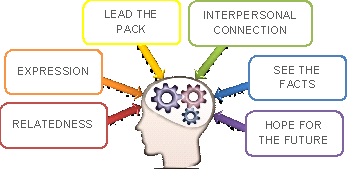Opportunity: Workplace team performance reviews

Teams are the fundamental building blocks of an organisation and when performing at their best, they can be empowered, high performing and creative. However when they do not perform, often it is not just KPIs that suffer, but also morale and culture. Sarah Colley asks First 5000 members to participate in a project that reviews your strengths and areas for development.
The whole is greater than the sum of its parts could not be more accurate when evaluating the functioning of teams in the workplace. While it may be useful to have subject matter experts within a team, their individual contributions will be ineffective if not aligned with the overall objectives of the team.
Consider this. You are a human resources professional. As a part of your job, you are required to keep tabs on the performance of several workgroups within the organisation. You go into work one day, sit at your desk and begin crunching through the performance output from the last six months and what you find is that one particular team is underperforming and appears, for the most part, to be unproductive, but there is no clear evidence to suggest why this might be. After digging a little deeper you find that a clash between group members exists. Upon further investigation, you discover that there is no true conflict between these members, but rather a clash in work styles.
Brenden’s style is action focused. He wants to get in and get the job done. On the other hand, you have Jane who is concerned with the process and the facts that contribute to the end result. In your discussions with Jane, she confides that Brenden is careless and ignorant to data. She finds Brenden difficult to work with because he glances over her suggestions without a great deal of consideration. In your discussions with Brenden, he tells you that Jane is nit-picky and he feels frustrated to work with her because she gets so bogged down in the fine details.
Neither team member is correct or incorrect in how they are going about their work and there are theories to give light as to how to manage each of these individuals’ preferences. There are a whole host of excellent personality frameworks to choose from when dealing with these types of challenges. However, neuroscience tells us that an understanding of personality alone may not be sufficient as there is enormous insight to be gained in understanding social systems, team culture and how people’s brains work in groups, in order to build high performance teams, as most behaviour is driven socially not just by personality characteristics.
What if we could assess team functionality and effectiveness without individual preferences being part of the equation? Whilst it is useful to gain insight into the individual, from a team level perspective, this can sometimes cloud the data and result in extra hurdles to overcome.
Over the last 20 years, Peter Burow and the NeuroPower team have developed a framework based around neuroscience suggesting that our brains seek the fulfilment of six social cognitive needs. These six social needs (R.E.L.I.S.H) include Relatedness – the need to belong to a collective, Expression – the need to express what we are truly feeling, Leading the Pack – the need for motivation and achievement, Interpersonal Connection – the need to feel like we are understood by others in the team, Seeing the Facts – the need for feedback and information, and Hope for the Future – the need to feel like there is a positive future ahead. Their work has been used to assist teams around the world, in finding their strengths and areas for development and assisting teams in building on those.
With ever increasing complexity and time pressure, there is a growing imperative for leaders to get their teams performing highly. Because of this demand, Pockets of Brilliance, in conjunction with NeuorPower, are looking at ways of bringing this insight to more people. As such, we are in the Beta phase of testing a new assessment tool for release in 2015.
Ultimately, teams are the fundamental building blocks of an organisation and when performing at their best, they can be empowered, high performing and creative, however when they do not perform, often it is not just KPIs that suffer but also morale and culture. RELISH is a very useful framework which provides insight into the team’s functioning without messy individual preference data. The assessment, once finalised will objectively measure the 6 areas of RELISH (Relatedness, Expression, Lead the Pack, Interpersonal Connection, Seeing the Facts and Hope for the Future) and organisations will be able to use the tool to “test the temperature” and create not just good, but brilliant teams.
Dr. Sarah Colley is a change and innovation psychologist, specialising in the application of psychology to organisational settings. She has studied psychology and the human mind for over 12-years and is a member of the Australian Psychological Association. Sarah has spent the past eight-years developing and applying innovative psychological processes to organisational workplaces to enhance innovation, culture, leadership and team effectiveness. Sarah has worked across a range of industries including museums, government, mining, explosives, energy, smelting, and shipping. Her work has taken her across America, Canada, Europe, New Zealand and Australia, where she has worked with operational staff through to senior executives. At Pockets of Brilliance Sarah leads a team of talented psychologists who work as business collaborators. Pockets of Brilliance apply insights from psychology, neuroscience and human-centered design to help organisation innovate, create and transform the way they do business.


